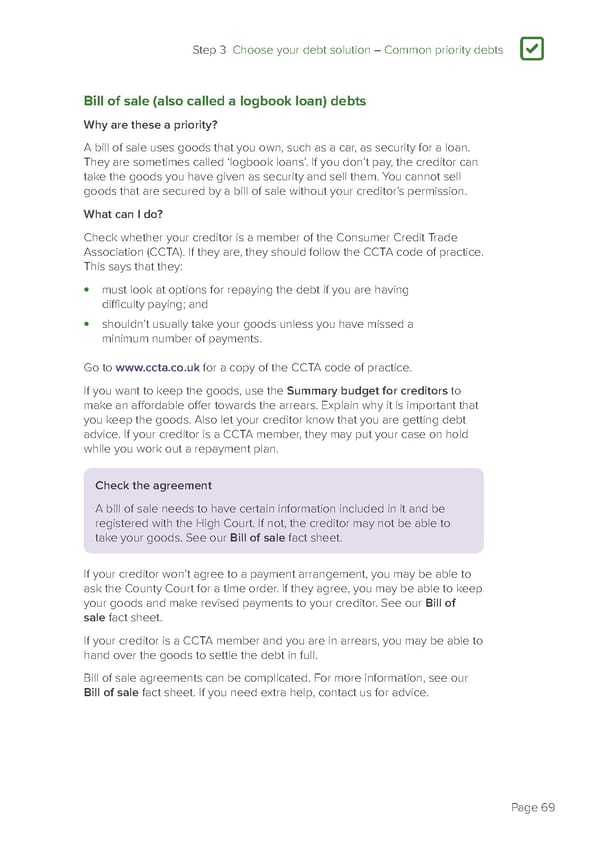Step 3 Choose your debt solution – Common priority debts 3 Bill of sale (also called a logbook loan) debts Why are these a priority? A bill of sale uses goods that you own, such as a car, as security for a loan. They are sometimes called ‘logbook loans’. If you don’t pay, the creditor can take the goods you have given as security and sell them. You cannot sell goods that are secured by a bill of sale without your creditor’s permission. What can I do? Check whether your creditor is a member of the Consumer Credit Trade Association (CCTA). If they are, they should follow the CCTA code of practice. This says that they: • must look at options for repaying the debt if you are having difficulty paying; and • shouldn’t usually take your goods unless you have missed a minimum number of payments. Go to www.ccta.co.uk for a copy of the CCTA code of practice. If you want to keep the goods, use the Summary budget for creditors to make an affordable offer towards the arrears. Explain why it is important that you keep the goods. Also let your creditor know that you are getting debt advice. If your creditor is a CCTA member, they may put your case on hold while you work out a repayment plan. Check the agreement A bill of sale needs to have certain information included in it and be registered with the High Court. If not, the creditor may not be able to take your goods. See our Bill of sale fact sheet. If your creditor won’t agree to a payment arrangement, you may be able to ask the County Court for a time order. If they agree, you may be able to keep your goods and make revised payments to your creditor. See our Bill of sale fact sheet. If your creditor is a CCTA member and you are in arrears, you may be able to hand over the goods to settle the debt in full. Bill of sale agreements can be complicated. For more information, see our Bill of sale fact sheet. If you need extra help, contact us for advice. Page 69
 how-to-deal-with-debt Page 70 Page 72
how-to-deal-with-debt Page 70 Page 72